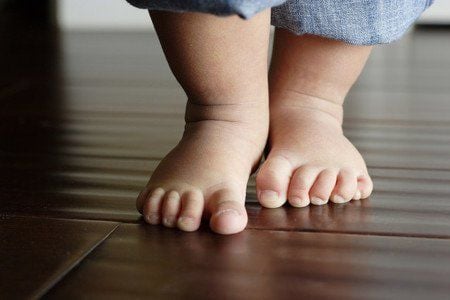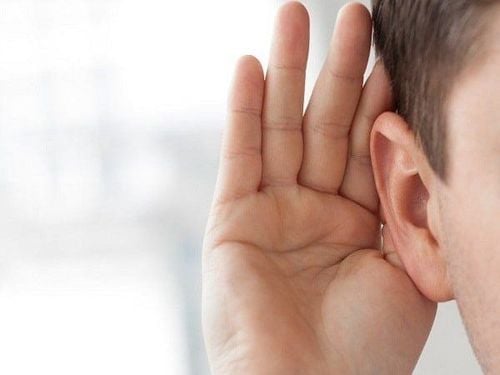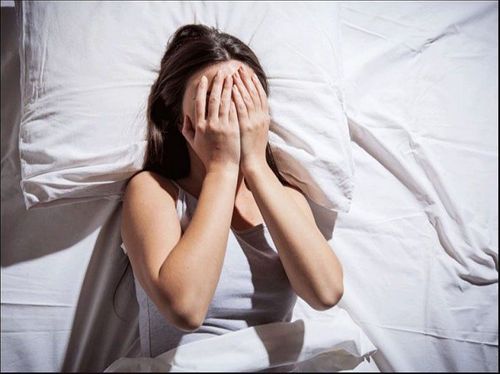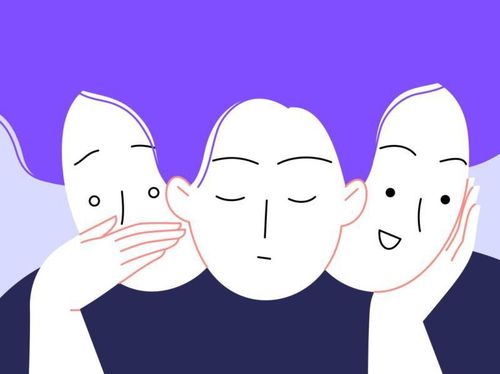This is an automatically translated article.
Childhood schizophrenia is a serious mental health disorder in children under the age of 13 that affects how they cope with reality. Your child may have unusual thoughts, feelings, or behavior. This condition is also known as childhood-onset or very early-onset schizophrenia. This disorder is rare and often difficult to detect. There is no cure, but treatment can help children.1. What is childhood schizophrenia?
Childhood schizophrenia is a serious mental disorder that occurs in children under the age of 13, affecting the way they cope with reality. Your child may have unusual thoughts, feelings, or behavior. This condition is also known as childhood-onset or very early-onset schizophrenia.Childhood schizophrenia is rare and often difficult to detect. Currently we do not have a cure for this disease completely, but treatment can help children.
2. Signs of schizophrenia in children
First, children with schizophrenia go through a stage known as the prodromal or paranoid phase. Children may withdraw from activities of daily living, be more anxious, and have less interest in school or friends. However, not all children with these signs have a mental disorder, so it's important to talk to your doctor if you notice any problems.2.1. Signs of Schizophrenia in Toddlers A toddler may show different signs of schizophrenia than in older children, adolescents, and adults.
The disorder affects the way a child develops. You may notice things like:
For long periods of time they are sluggish or inactive. Hands or feet are soft Delays in crawling, walking, or talking Odd movements like swinging or flapping your arms A limp or saggy posture Some of these symptoms appear in children with problems other than schizophrenia. And some occur in children without any mental health conditions. Only a psychiatrist can figure out what's really going on.

Trong một khoảng thời gian dài trẻ chậm chạp hoặc không hoạt động có thể là dấu hiệu bạn cần lưu ý
Tell your doctor as soon as you see symptoms of schizophrenia in your child. It's important to get a diagnosis and start treatment before a child shows signs of being detached from reality, known as psychosis.
2.3. Signs of schizophrenia in elementary school children Children are unable to distinguish between reality and dreams, stories, TV shows, etc. Intense fear that someone or something is hurting the child (delusion). Hearing things that are not real (auditory hallucinations) such as whispers or voices asking the child to do something. Seeing things that are not real (visual hallucinations) such as flashing lights or dark patches. Mood or anxiety. Lack of emotional expression when the child speaks. Agitated behavior, confusion, followed by periods of sitting and staring. Act like a younger child. However, not every child with these signs has schizophrenia. Talk to your doctor if you have any concerns.
Experts divide the symptoms of schizophrenia in children into three categories: positive, negative, and cognitive.
Positive symptoms of psychosis , which means there is a period when the child feels great above reality. These include abnormal movements, abnormal thoughts, and hallucinations. Negative symptoms are related to behavior and emotions. These include isolation, not talking much, and little or no emotion. Cognitive symptoms indicate a difference in the way a child thinks or remembers, such as difficulty concentrating or understanding something.
3. Causes of schizophrenia in children
Experts aren't sure exactly what causes schizophrenia in children or why it starts in childhood for some people and at an older age for others.A child's genes and brain chemicals may play a role. The disease sometimes occurs in more than one family member. If someone in your family has schizophrenia, your child is more likely to develop it.
Some experts also suggest that childhood schizophrenia may be related to things that happened during a woman's pregnancy, such as:
Drug or alcohol use Exposure to viruses , bacteria or chemicals Stress Poor nutrition

Một số chuyên gia cũng cho rằng tâm thần phân liệt ở trẻ em có thể liên quan đến những điều đã xảy ra trong thời kỳ mang thai của phụ nữ
4. Diagnosis of schizophrenia in children
Pediatric psychiatrists can diagnose schizophrenia in children. Because different mental health conditions can have similar symptoms, it can be difficult to get an accurate diagnosis. It can take a lot of time and effort for people to do this.Other doctors will be involved to provide your child with physical exams, blood tests, mental health checks, brain imaging tests, and other tests. All of which are key in finding the correct diagnosis and developing a treatment plan to help your child manage the disease.
5. Treatment of schizophrenia in children
Treatment for schizophrenia for children is the same as for adults. It includes:Medications : Your doctor may recommend one or more antipsychotic medications. These drugs are also known as neuroleptics. They help manage delusions (belief in things that are not real) and hallucinations (seeing or hearing things that are not real). Talk to your doctor about side effects and other medicines that your child should not take while taking these medicines.

Bác sĩ có thể đề nghị một hoặc nhiều loại thuốc chống loạn thần
6. Complications of schizophrenia in children
If left untreated, schizophrenia can cause problems in childhood and later in life. Complications of schizophrenia in children include:Other mental disorders Self-harm or suicide Drug or alcohol use disorders Conflict and separation from family and friends Legal issues and finances Difficulty living alone, going to school, or keeping a job When childhood schizophrenia is diagnosed and treated early, the illness can be managed as a child. Medical professionals will monitor the child's condition and treatments for life.
Although there is no cure for this disorder, people with schizophrenia can be successful in school, work, and in their social lives with proper treatment.
Psychological Health Clinic - Vinmec Times City International General Hospital has the function of examining, consulting and outpatient treatment of psychological and mental health problems, including sleep disorders. With modern equipment, Vinmec Psychological Health Clinic is currently cooperating with experienced professors and experts:
MSc. Doctor Nguyen Van Phi MSc. Doctor Pham Thanh Luan MSc. Doctor Nguyen Trong Hien Master, Doctor Nguyen Minh Quyet Master, Doctor Nguyen Thanh Long Master, Doctor Nguyen Thi Hoa Together with the implementation of psychological tests, intensive psychotherapy serving diagnosis and treatment, in order to bring the best medical examination and treatment effect.
Please dial HOTLINE for more information or register for an appointment HERE. Download MyVinmec app to make appointments faster and to manage your bookings easily.
Reference sources: webmd.com, mayoclinic.org












